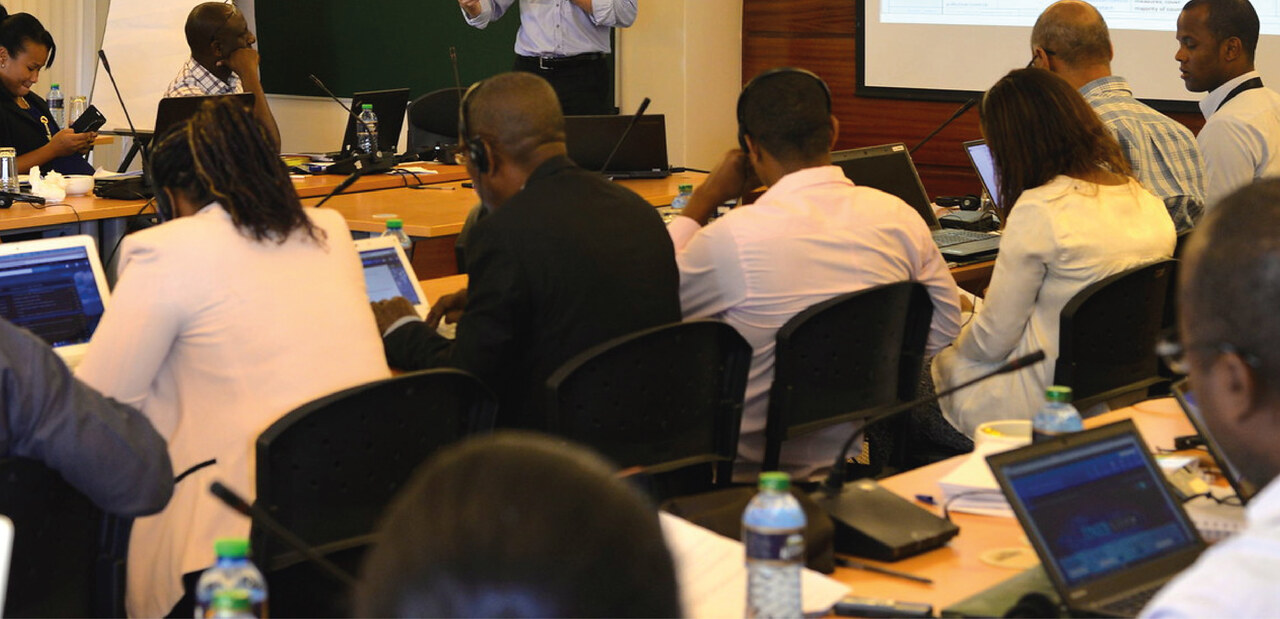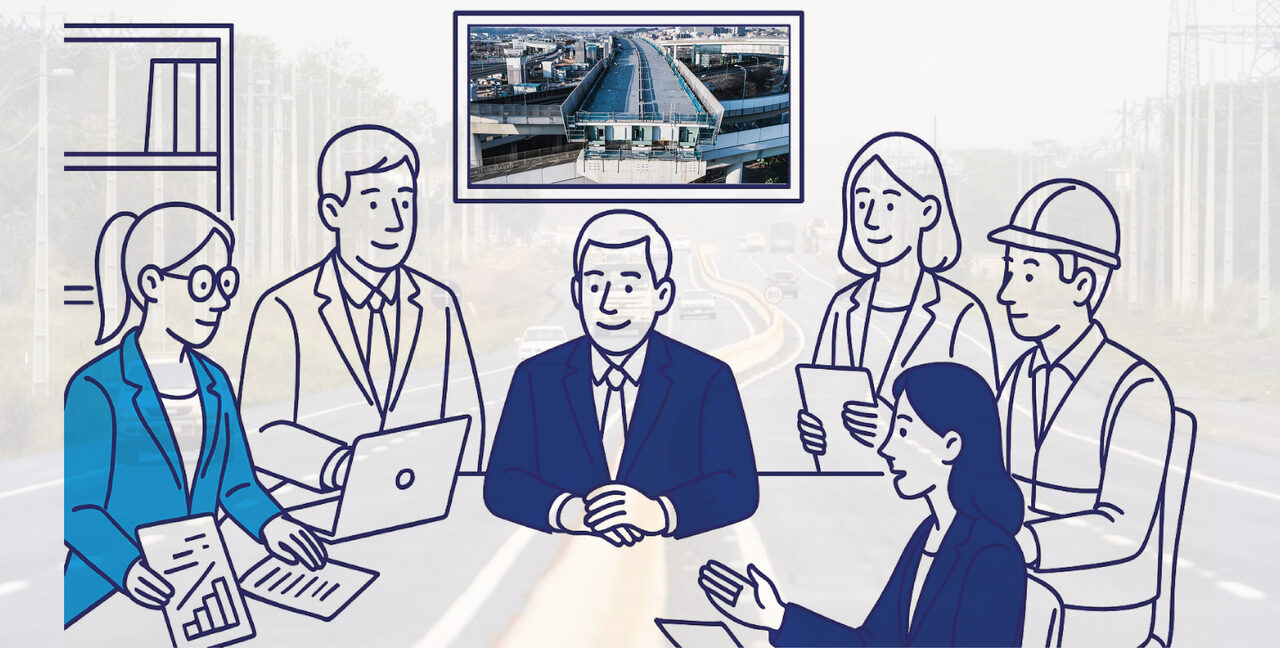
Legal & Regulatory Framework Governing PPPs
Public–Private Partnerships (PPPs) are reshaping the way infrastructure and public services are developed, financed, and managed. For PPP projects to succeed, a clear understanding of the legal and regulatory framework is essential. Our specialized training program equips public officials, legal practitioners, project managers, and private sector stakeholders with the knowledge and skills to navigate this complex environment confidently
Why This Training Matters
The success of any PPP hinges on a sound legal foundation. Misinterpretation or non-compliance with PPP laws, regulations, and contractual provisions can result in costly delays, disputes, and even project failure. This course ensures participants:
- Understand PPP laws, regulations, and policy frameworks at both national and regional levels.
- Gain insight into risk allocation, dispute resolution, and contract enforcement.
- Learn how to align PPP projects with procurement laws, investment laws, and sector-specific regulations.
Key Learning Areas

- PPP Policy and Legislative Frameworks
Overview of statutory instruments governing PPPs.

- Institutional Arrangements
Roles and responsibilities of contracting authorities, regulators, and oversight bodies.

- Project Structuring & Legal Documentation
From MoUs and feasibility approvals to concession agreements and amendments.

- Risk Management & Dispute Resolution
Legal strategies for managing disputes, defaults, and renegotiations.

- Compliance & Monitoring
Ensuring projects remain within legal and contractual boundaries throughout their lifecycle.
Who Should Attend
- Government officials in PPP units or contracting agencies.
- Legal advisors, corporate counsels, and transaction lawyers.
- Project managers and consultants working on PPP projects.
- Private sector investors, lenders, and developers entering PPP markets
Training Approach
Public–Private Partnerships (PPPs) are reshaping the way infrastructure and public services are developed, financed, and managed. For PPP projects to succeed, a clear understanding of the legal and regulatory framework is essential. Our specialized training program equips public officials, legal practitioners, project managers, and private sector stakeholders with the knowledge and skills to navigate this complex environment confidently
Outcomes
By the end of the training, participants will be able to
- Interpret and apply PPP laws effectively.
- Identify legal risks early and develop mitigation strategies.
- Draft, review, and negotiate PPP contractual clauses with confidence.
- Ensure legal compliance across all project phases.
Project Structures & Governance
A well-structured Public–Private Partnership (PPP) is the foundation for delivering sustainable infrastructure and public services. Our PPP Fundamentals: Project Structures and Governance training equips participants with the essential knowledge and practical tools to design, implement, and oversee PPP projects effectively.
Why This Training Matters
PPP projects are complex collaborations that require clear structures and robust governance to succeed. Without a well-defined framework for decision-making, accountability, and oversight, projects risk delays, cost overruns, and stakeholder conflicts. This course ensures participants understand how PPPs are organized, who makes decisions, and how governance safeguards project outcomes
Key Learning Areas

- PPP Models & Structures
Understanding different arrangements such as BOT, BOOT, DBFO, lease contracts, and service contracts.

- Roles & Responsibilities
Defining the functions of government agencies, private partners, financiers, and regulators.

- Institutional Frameworks
How PPP units, steering committees, and independent oversight bodies operate.

- Decision-Making Processes
From project identification and appraisal to procurement and contract management.

- Governance Mechanisms
Ensuring transparency, accountability, and effective stakeholder engagement.

- Risk Allocation & Management
Structuring projects to assign risks to the party best able to manage them.
Who Should Attend
- Policy makers and senior government officials.
- Project managers, engineers, and financial analysts.
- Legal advisors and contract managers.
- Private sector developers, investors, and lenders involved in PPPs.
Training Approach
Through interactive lectures, real-life case studies, and group exercises, participants learn how to build structures that support successful project delivery while fostering trust between public and private partners
Outcomes
By the end of the training, participants will be able to
- Identify the most suitable PPP structure for different project types.
- Establish governance frameworks that enhance transparency and efficiency.
- Define clear roles, responsibilities, and reporting lines.
- Apply best practices in decision-making and oversight to safeguard project performance.
Project Preparation & Implementation
A successful Public–Private Partnership begins long before contracts are signed—it starts with thorough preparation, rigorous appraisal, and disciplined implementation. Our PPP Project Preparation, Appraisal and Implementation training gives participants the skills to design projects that are technically sound, financially viable, and capable of delivering long-term value for the public.
Why This Training Matters
Poorly prepared PPP projects often face cost overruns, delays, and stakeholder disputes. A well-prepared project, on the other hand, inspires investor confidence, attracts competitive bids, and delivers services efficiently. This course guides participants through the critical steps needed to transform a project idea into a bankable, implementable PPP
Key Learning Areas

- Project Preparation
- Identifying PPP opportunities aligned with strategic infrastructure plans
- Conducting preliminary needs assessments and project scoping
- Engaging stakeholders early to build support and address concerns

- Project Appraisal
- Technical Appraisal – Ensuring design feasibility and engineering soundness.
- Financial & Economic Appraisal – Value-for-money assessments, affordability analysis, and fiscal impact evaluation.
- Legal & Regulatory Appraisal – Checking compliance with PPP laws, procurement rules, and sector regulations.
- Environmental & Social Appraisal – Impact assessments and sustainability considerations.

- Implementation
- Managing the procurement process and competitive bidding
- Negotiating and finalizing the PPP contract.
- Overseeing construction, commissioning, and service delivery.
- Monitoring performance against contractual KPIs and managing change
Who Should Attend
- Government officials and PPP unit staff.
- Project managers, engineers, and technical consultants..
- Financial and legal advisors
- Private sector developers, investors, and operators.
Training Approach
Through case studies, hands-on exercises, and scenario simulations, participants gain practical experience in preparing and appraising PPP projects—and in managing their implementation to achieve the intended outcomes.
Outcomes
By the end of the training, participants will be able to
- Develop comprehensive PPP project preparation plans
- Conduct multi-dimensional appraisals to ensure project viability.
- Structure and manage PPP implementation for timely, cost-effective delivery.
- Apply best practices to monitor and enforce performance standards.
Contracting & Negotiation
In a Public–Private Partnership, the contract is the heart of the deal—it defines responsibilities, allocates risks, and safeguards public interest. Our PPP Contract Structuring and Negotiation training equips participants with the knowledge and skills to design robust contractual frameworks and negotiate agreements that ensure project success from inception to completion.
Why This Training Matters
PPP contracts are complex, long-term agreements that must balance commercial viability for the private sector with service quality and value-for-money for the public. Poorly structured contracts or weak negotiations can expose projects to disputes, revenue shortfalls, and operational failures. This course empowers participants to craft clear, enforceable, and bankable PPP agreements.
Key Learning Areas

- Contract Structuring
- Defining the project scope, service levels, and performance standards.
- Allocating risks between public and private partners.
- Structuring payment mechanisms, revenue models, and tariff frameworks.
- Including clauses on change management, early termination, and step-in rights.
- Ensuring compliance with PPP laws, sector regulations, and procurement rules.

- Contract Negotiation
- Preparing a negotiation strategy and setting objectives.
- Understanding the interests and priorities of each party
- Negotiating risk-sharing arrangements and dispute resolution mechanisms
- Balancing flexibility with contractual certainty for long-term arrangements.
- Finalizing agreements to achieve financial close without compromising service outcomes.
Who Should Attend
- Government officials, PPP unit members, and procurement officers
- Legal counsels, transaction advisors, and contract managers.
- Private sector developers, financiers, and operators..
- Project managers involved in infrastructure and service delivery contracts.
Training Approach
The course blends expert-led lectures, case study reviews, and mock negotiation exercises to give participants both the theoretical understanding and practical experience needed to secure win–win PPP contracts.
Outcomes
By the end of the training, participants will be able to
- Design PPP contracts that are clear, balanced, and enforceable..
- Negotiate effectively to achieve sustainable agreements.
- Identify and mitigate legal, financial, and operational risks.
- Manage contract variations and maintain performance standards throughout the project lifecycle.
Monitoring & Evaluation
Monitoring and Evaluation (M&E) is critical to ensuring that Public–Private Partnership projects deliver the promised results—on time, on budget, and to the agreed quality standards. Our PPP Monitoring & Evaluation training equips participants with the tools, techniques, and frameworks to track performance, measure outcomes, and ensure compliance throughout the project lifecycle
Why This Training Matters
A PPP contract is only as good as its implementation. Without effective monitoring, performance issues can go unnoticed until they become costly problems. Evaluation ensures lessons are learned and best practices are applied to future projects. This training helps participants establish transparent, accountable, and results-oriented oversight systems that protect public value.
Key Learning Areas

- Monitoring
- Establishing Key Performance Indicators (KPIs) and service level benchmarks.
- Setting up monitoring frameworks and reporting systems.
- Conducting site inspections, audits, and performance reviews
- Ensuring compliance with technical, financial, and legal obligations.
- Managing variations, amendments, and remedial actions

- Evaluation
- Designing evaluation frameworks for mid-term and post-completion reviews.
- Measuring economic, social, and environmental impacts.
- Assessing value-for-money and sustainability.
- Capturing lessons learned for future PPPs.
Who Should Attend
- Contract managers, project officers, and PPP unit staff.
- Regulators and oversight agency representatives.
- Private sector operators and compliance managers.
- Auditors and performance evaluation specialists.
Training Approach
Our program combines practical tools, real-world case studies, and interactive exercises to build participants’ capacity to monitor and evaluate PPPs effectively.
Outcomes
By the end of the training, participants will be able to
- Develop and implement robust PPP monitoring plans
- Use data-driven insights to improve project performance.
- Conduct objective evaluations to assess long-term project impact.
- Strengthen accountability, transparency, and public trust in PPP delivery.
Long-Term Contract Management
In Public–Private Partnerships, signing the agreement is only the beginning. Effective contract management ensures that both public and private partners meet their obligations, risks are managed, and the project delivers its intended benefits throughout its lifecycle. Our Contract Management training equips participants with the skills and frameworks needed to oversee PPP agreements from financial close to handover
Why This Training Matters
PPP contracts often span 15–30 years, making ongoing oversight essential to safeguard public interest and maintain service quality. Without structured contract management, issues such as performance shortfalls, cost overruns, and disputes can undermine project success. This course provides a practical roadmap for keeping PPP projects on track.
Key Learning Areas

- Foundations of Contract Management
- Understanding the PPP contract and its key clauses.
- Roles and responsibilities of contract management teams
- Setting up governance and communication protocols

- Performance Oversight
- Monitoring compliance with service level agreements (SLAs) and KPIs
- Managing payments, penalties, and incentives.
- Conducting inspections, audits, and technical reviews.

- Change and Risk Management
- Handling contract variations, extensions, and amendments
- Managing disputes, defaults, and early termination scenarios.
- Proactive risk identification and mitigation..

- Handover and Close-Out
- Ensuring contractual obligations are fulfilled at the end of term.
- Managing asset transfer and post-project evaluation.
Who Should Attend
- Contract managers and project officers.
- PPP unit officials and government agency representatives
- Private sector operators and compliance managers
- Legal, technical, and financial advisors to PPPs.
Training Approach
Through interactive workshops, real-life case studies, and role-playing exercises, participants gain both the theoretical knowledge and practical skills to manage complex PPP contracts effectively.
Outcomes
By the end of the training, participants will be able to
- Establish effective PPP contract management systems
- Monitor and enforce performance obligations..
- Manage contractual changes without compromising project objectives
- Maintain collaborative relationships while safeguarding public value
End-to-End PPP Process Management
Public–Private Partnerships (PPPs) follow a structured process to ensure that projects are well-prepared, financially viable, and deliver value for money. Our Overview of the PPP Process training provides a step-by-step understanding of how PPP projects are conceived, developed, procured, and managed—equipping participants with the insight needed to navigate each stage successfully.
Why This Training Matters
The PPP process involves multiple stages, stakeholders, and decision points. Missing a key step or misunderstanding procedural requirements can derail a project. This course ensures participants gain a clear roadmap for moving from concept to successful operation and handover.
Key Learning Areas

- Project Identification
Selecting projects aligned with national priorities and strategic plans.

- Feasibility Studies & Value-for-Money Assessment
Evaluating technical, financial, economic, environmental, and social viability.

- Approvals & Institutional Roles
Understanding the mandates of PPP units, ministries, and oversight committees.

- Procurement Process
Designing fair, transparent, and competitive bidding processes.

- Governance Mechanisms
Ensuring transparency, accountability, and effective stakeholder engagement.

- Contract Negotiation & Financial Close
Finalizing agreements that balance risk, reward, and public interest.

- Construction & Implementation
Monitoring performance, managing risks, and ensuring compliance.

- Operation & Maintenance
Overseeing delivery of services and ensuring quality standards.

- Handover/Termination
Ensuring smooth asset transfer at the end of the PPP term.
Who Should Attend
- Government officials involved in infrastructure planning and procurement.
- Private sector developers, investors, and contractors.
- Legal, financial, and technical advisors to PPP projects.
- Regulators and oversight agencies
Training Approach
The program blends expert instruction, real-world case studies, and process mapping exercises, enabling participants to visualize and internalize the entire PPP lifecycle.
Outcomes
By the end of the training, participants will be able to
- Describe the full PPP process from project conception to handover.
- Identify the key decision points and approvals required at each stage.
- Apply best practices for managing PPPs throughout their lifecycle.
- Recognize the interdependence between legal, technical, and financial workstreams.